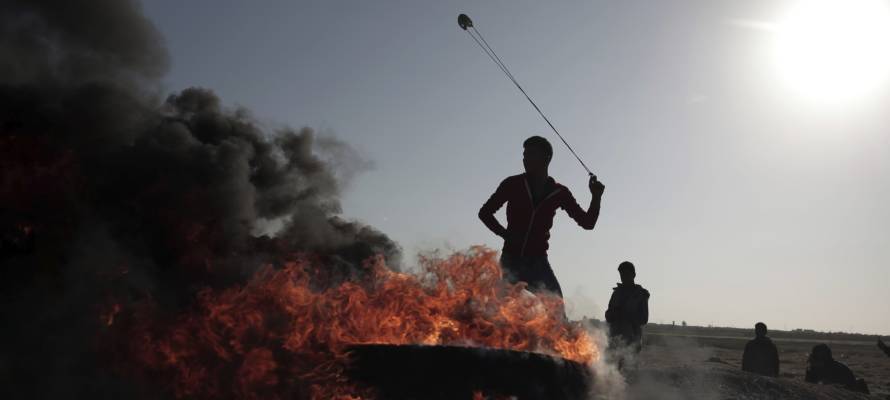The vast majority of Palestinians believe that the March of Return, the violent Hamas-led riots on Israel’s border with Gaza, completely failed.
By: United with Israel Staff
The vast majority of the Palestinians believe that the so-called March of Return, the violent Hamas-led riots on Israel’s border with Gaza, achieved nothing.
Only 21 percent of the Palestinians believe the March of Return achieved most of its goals, while 74 percent believe it has not achieved its goals or achieved little, according to a poll conducted by the Palestinian Center for Policy and Survey Research at the end of last month.
The March of Return was supposedly an attempt to break the “Israeli blockade.” After three and a half months of terrorism, nothing has changed.
It is worth noting that the Palestinian public is evenly divided in its assessment of who is the driving force behind the riots. Some think it is the Hamas terror organization and others think it is civil society organizations.
Gazans, however, show no hesitancy on this as they strongly believe that it is indeed Hamas that stands behind the initiation and organization of the March of Return. They are present at the scene of the violence, and therefore know the truth.
The truth is that the supposedly peaceful protests were violent riots, promoted by Hamas and executed mostly by terrorists.
Indeed, the majority of those killed in the border clashes were terrorists, Israel has proven.
“The ‘return marches’ were not ‘popular,’ ‘peaceful’ events, as falsely presented by Palestinian propaganda, but rather a Hamas strategic move accompanied by pre-planned violence,” the Meir Amit Intelligence and Terrorism Information Center (ITIC) determined.
In an interview with Al Jazeera in May, Hamas co-founder Mahmoud al-Zahar called the idea that the terrorist group was employing “peaceful resistance” against Israel “a clear terminological deception.”
“When you have weapons that are being wielded by men who were able to prevent the strongest army in the region from entering the Gaza Strip for 51 days and were able to capture or kill soldiers of that army — is this really ‘peaceful resistance’?” asked al-Zahhar.
“When we talk about ‘peaceful resistance,’ we are deceiving the public,” he said. “This is peaceful resistance bolstered by a military force and by security agencies, and enjoying tremendous popular support.”
In light of the suspension of peace negotiations, Palestinians support various alternative approaches: 75 percent support joining more international organizations, a form of diplomatic war against Israel at various forums and bodies, 67 percent support popular “non-violent resistance,” 43 percent support a return to an armed intifada, and 30 percent support abandoning the two-state solution and demanding the establishment of one state for Palestinians and Israelis.
